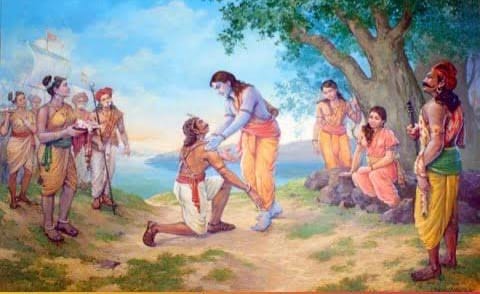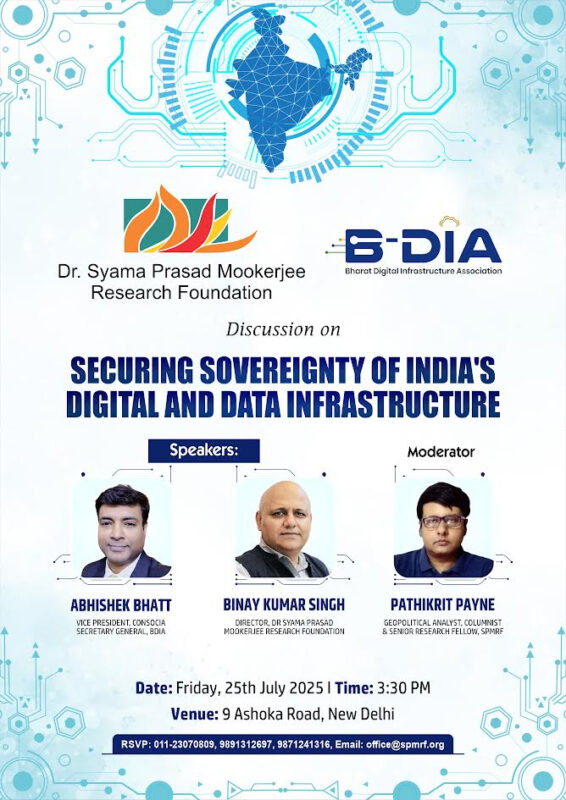Amidst the nuanced landscape of political ideologies, the concept of Ram Rajya stands out as a beacon of pure democratic governance. Unlike the cut-throat nature often associated with the survival of the fittest, Ram Rajya embraces an ethos akin to the survival of the weakest. This distinctive approach to governance paints a picture where the welfare of all citizens takes precedence, aligning seamlessly with democratic principles that transcend societal hierarchies.
At its core, Ram Rajya envisions a society where the government’s actions are not dictated by Darwin’s theory of survival, which posits that only the strongest endure. Instead, it strives for a system that mirrors the survival of the weakest, emphasising inclusivity and uplifting those at the bottom of the socio-economic pyramid. In this model, the government becomes a guardian of the vulnerable, ensuring that the marginalised are not left behind in the relentless pursuit of progress.
The commitment of PM Modi and the Bharatiya Janata Party (BJP) to the idea governance reflects a dedication to the well-being of all sections of society, transcending the traditional divide between the privileged and the underprivileged. In essence, the BJP’s alignment with Ram Rajya embodies the democratic principle that values the prosperity and welfare of every individual, irrespective of their strength or status in the social hierarchy and diversity.
Ram Rajya, as envisioned by proponents, is not a mere political ideology; it is a comprehensive framework that addresses the multifaceted needs of a diverse society. It goes beyond the myopic lens of favouring the strong and powerful and instead fosters an environment where every citizen, regardless of their background, enjoys the fruits of governance.
One of the hallmarks of Ram Rajya is its emphasis on social justice. Unlike systems that perpetuate inequality, this vision of governance seeks to bridge the gap between the privileged and the underprivileged. It strives to create a society where opportunities are not exclusive to a select few but are accessible to every citizen. This commitment to inclusivity resonates with the essence of democracy, where the voice of the weakest is as significant as that of the strongest.
Moreover, Ram Rajya recognises the inter-connectedness of various segments of society. It understands that a nation’s true strength lies in the well-being of all its citizens. By prioritising the needs of the weakest, it ensures that the entire social fabric remains robust and resilient. This approach stands in stark contrast to ideologies that fragment society, creating divisions that weaken the nation’s collective strength.
The welfare-centric focus of Ram Rajya also extends to economic policies. In a society guided by this principle, economic growth is not an end in itself but a means to uplift every stratum of the population. It envisions an economy that serves the common good, fostering sustainable development that benefits both the privileged and the marginalised.
Critics may argue that the concept of Ram Rajya is idealistic, a utopian vision that may be challenging to implement in the complexities of real-world politics. However, its idealism serves as a guiding light, urging political leaders to strive for a governance model that transcends narrow interests and priorities the well-being of all citizens.
Crucially, the concept of Ram Rajya transcends religious and political boundaries, standing as a testament to its universal applicability. While its roots may lie in the cultural and philosophical heritage of India, Ram Rajya is not confined to any specific religious group. Its essence lies in the principles of justice, inclusivity, and welfare for all, values that resonate universally.
In a world marked by diversity, embracing the ideals of Ram Rajya is not the exclusive prerogative of a particular religious community or political faction. Instead, it offers a common ground for people of various faiths and political affiliations to rally around shared principles that prioritise the greater good. By emphasising these universal values, Ram Rajya becomes a unifying force that can inspire collaborative efforts across religious and political spectra, fostering a society where the well-being of every individual is paramount, regardless of their religious beliefs or political allegiance.
The construction of the Ram Mandir in Ayodhya stands as a poignant symbol of a peace-loving community’s unwavering commitment to resolving a long-standing religious issue through democratic means. The journey toward the realisation of the Ram Mandir reflects not just a physical construction but a metaphorical edifice built on the principles of dialogue, reconciliation, and adherence to the democratic process.
The protracted struggle, marked by legal battles and negotiations, showcases a collective determination to address a complex religious issue within the framework of a democratic society. By opting for legal channels and engaging in constructive dialogue, the Bharatiya nation society involved in the Ram Mandir issue exemplifies a commitment to democratic tools as a means of resolution, fostering a precedent for peaceful conflict resolution that extends beyond religious boundaries. The construction of the Ram Mandir, therefore, becomes a testament to the potency of democratic values in navigating intricate religious matters, offering a blueprint for the peaceful resolution of contentious issues in diverse societies.
The Ram Rajya model of governance, with its emphasis on inclusive policies and the well-being of all citizens, has the potential to contribute significantly to making the world a happier place to live. By prioritising the survival and prosperity of the weakest, it tackles the root causes of social discontent and inequality. In a society guided by Ram Rajya principles, individuals from all walks of life would feel a sense of security and belonging, knowing that the government is dedicated to their welfare.
This holistic approach extends to economic policies, fostering sustainable development that benefits entire populations. As nations adopt such a governance model, promoting justice, inclusivity, and welfare, they pave the way for a global community where the pursuit of happiness becomes a shared endeavour, transcending borders and fostering a more harmonious world.
(The views expressed are the author's own and do not necessarily reflect the position of the organisation)


